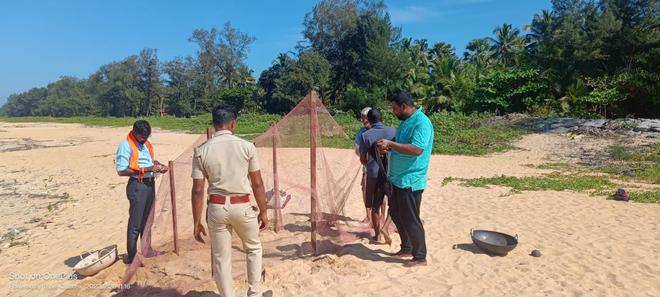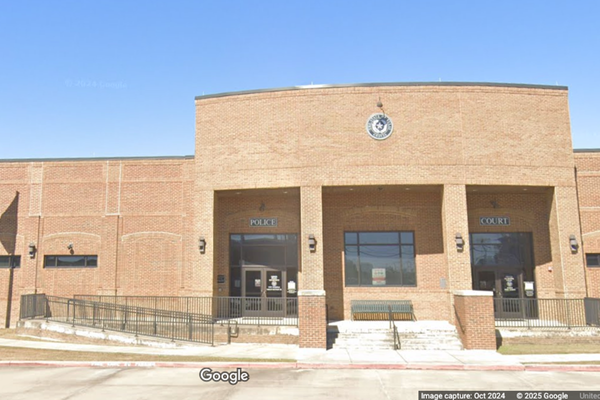With conservation activists letting 25 hatchlings from the various nests at Kodi beach in Kundapur, Udupi district, into the Arabian Sea, the Olive Ridley hatchling season of 2025 ended on May 20.
Since the Olive Ridley hatching season began in November-end 2022, more than 1,000 hatchlings have reached the Arabian Sea from 25 nests around Kundapur, 23 in Kodi beach, and one each at Trasi, about 10 km north of Kodi, and Koderi, about 15 km north of Kodi.
“As on May 20, germinated eggs from all the 25 nests have reached the Arabian Sea,” said FSL India activist Dinesh Saranga. “Once turtles lay the eggs, they take 48 to 54 days to germinate, depending upon the weather condition,” he said.
Olive Ridleys laid eggs after a gap of 14 years at Trasi beach this January, and 70 hatchlings were released to the Arabian Sea from one nest (serial number 10). Trasi beach was the nesting centre for Olive Ridleys for over 25 years but the turtles stopped visiting Trasi beach to lay eggs in 2012.
Late Dasimane Venkata Kharvi of Maravanthe fishing village was a pioneer in rescuing and nurturing Olive Ridley turtles and their eggs, Mr. Saranga said.
Sustained efforts to ensure safety of Olive Ridley eggs
Mr. Saranga said it was not an easy task to ensure all the eggs laid by Olive Rieleys hatched, but for the sustained efforts by conservationists, comprising local fishermen, forest department personnel, NGOs, including FSL India and Clean Kundapur, and enthusiastic youngsters.

Kodi beach that was strewn with trash. It was cleaned as part of the Swatch Bharat campaign, which resulted in an increase in the number of turtles visiting the area. However, there was the threat of dogs eating and destroying turtle eggs.
Activists marked the nests, and erected temporary protection barriers around the nests. Most importantly, they watched the nests round-the-clock to protect them from animals as well as humans.
FSL India director Rakesh Soans, Clean Kundapur’s Arun, Bharath Bangera and Vivek Pai, forest department’s Gururaj Nayak and Ranjith Poojary, local fishermen and others were actively involved in the conservation efforts, Mr. Saranga said.







